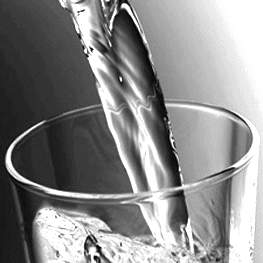SA Water reaches requirements
 SA’s Essential Services Commission (ESCOSA) says SA Water is improving outcomes for customers.
SA’s Essential Services Commission (ESCOSA) says SA Water is improving outcomes for customers.
ESCOSA’s annual report details SA Water’s performance against its regulatory requirements, relating to customer service, financial assistance provided to customers and the reliability of drinking water and sewerage services.
Fifteen of the eighteen service standards were met or exceeded, with the remaining three being within one per cent or less of the target.
SA Water’s General Manager of Customer Delivery Kerry Rowlands said it is about getting the basics right.
“We achieved some great results, and this was made possible through strategic investment, increasing our focus on learning more about our customers’ expectations, ongoing training of our people, and implementation of new and emerging technology,” Mr Rowlands said.
“It was particularly pleasing to see a 7.6 per cent reduction in customer complaints from the previous year (1909 to 1763), with the majority of written and telephone complaints responded to in a timely manner.
“Between 2016–17 and 2017–18, there was also a 26 per cent drop (264 to 196) in the number of complaints made about SA Water to the Energy and Water Ombudsman of South Australia, which shows we are more effectively resolving complaints before customers feel they need the assistance of the Ombudsman.
“Feedback from our customers is crucial to improving how we operate and do business with them, so while we’d naturally like to receive fewer complaints, when people do write or call us, it’s important their issue is resolved, and they still have a good experience in the process.”
The report also highlights areas for continuous improvement, such as reducing faults across the almost 9,000 kilometre sewer network.
“Keeping our sewers healthy is a shared responsibility, and for our customers, it’s as simple as remembering to flush the three P’s – poo, pee and (toilet) paper,” Mr Rowlands said.
“Things which are put down the sink or flushed down the toilet – but shouldn’t be – such as cooking fats and oils, sanitary items, wet wipes, and even kids’ toys or sprinkler heads, are some of the main contributors to sewer blockages and overflows.
“We also need to keep doing our part – in addition to our ongoing sewer main renewal program we’ve also begun piloting the use of smart technology in two targeted areas, with the aim of reducing the impact of sewer faults on our customers.
“In Stonyfell, the local network has been equipped with 88 level, 13 pressure and two water quality sensors to monitor the movement of sewage, to help detect pipe blockages and prevent overflows.
“In Gawler, we’ve installed 88 odour detection sensors and one weather station, to better understand the behaviour of odour in this part of the network and how we can better manage the issue over time.
“Full benefits of this new equipment are expected to be realised around mid–2019.”







 Print
Print